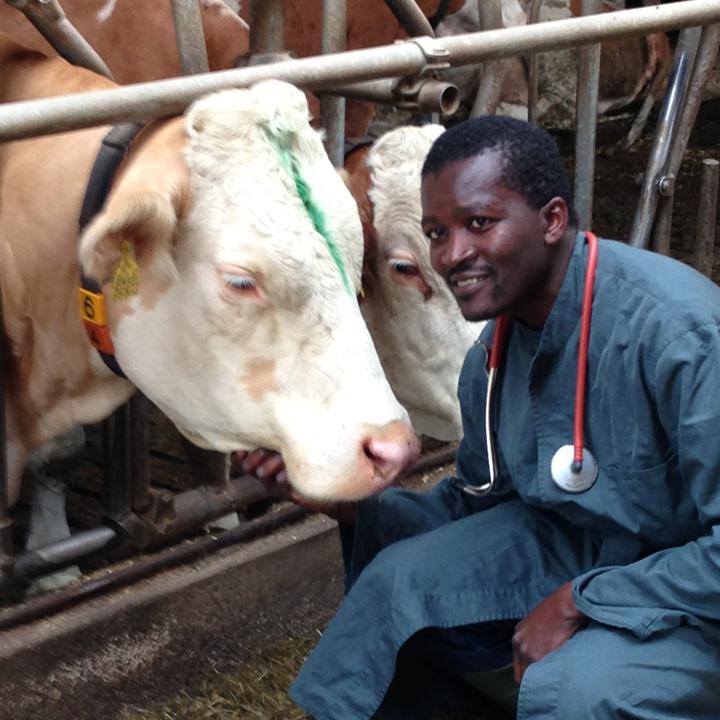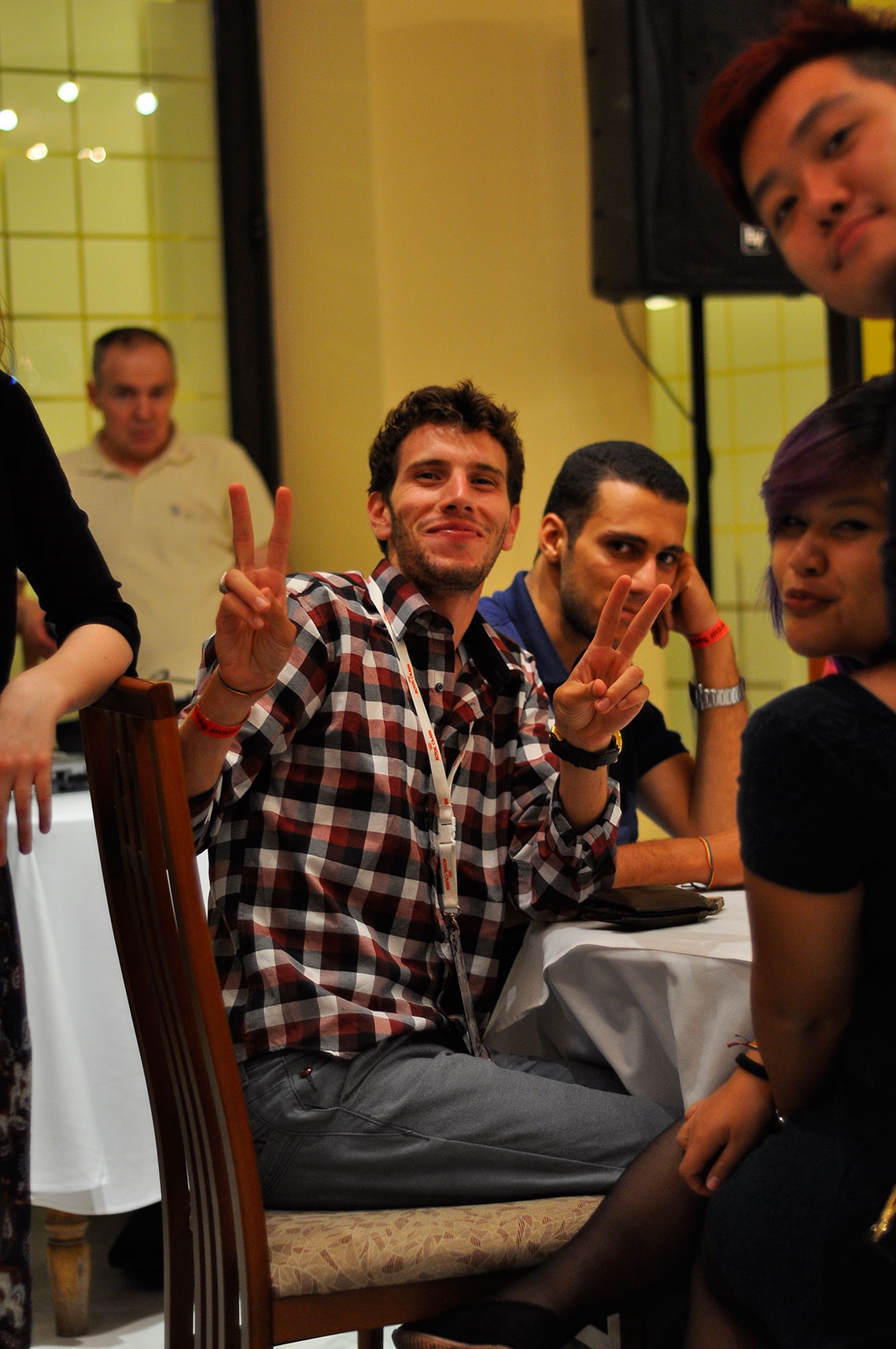
Interview with a Bavarian bovine practitioner with African roots
Some people give up a lot in order to realize their dream of becoming a veterinarian. So did Dr. Hamed Coulibaly, who left his family and home country in Africa many years ago in order to study veterinary medicine in Germany. Now he is a practicing veterinarian and owns a practice for cattle and new & old world camelids in Bad Tölz, Upper Bavaria. We interviewed him about his experiences as a foreigner during his studies and his career.
- Mr. Coulibaly, you left your home country „Ivory Coast“ in 1998 and came to Germany in order to study veterinary medicine. Why did you decide to move to Germany and where did you learn German?
Mr. Coulibaly: I came to Germany with the aim of studying veterinary medicine here. I had already done basic studies in my home country for three years, but veterinary medicine is not offered as a field of study. This is only possible at a private university in Senegal. I decided to move to Germany because my brother had already been living here. I studied German for several months at a language institute and had to pass a language test in order to be accepted to a German university.
- Was it hard to gain admission to a German university? What did you do before you were admitted?
Mr. Coulibaly: No, it wasn´t difficult at all to get into the university. This is because a a certain number of places are reserved for foreign students. These are not offered by the central department, so I had to apply directly to the university. Since very few foreigners come to Germany in order to study veterinary medicine, I got into the program quickly. In order to improve my German, I studied Chemistry for one semester until I started the veterinary program.
- You studied veterinary medicine at the Ludwig Maximilians University (LMU) in Munich between 1999 and 2005. Did you ever hear xenophobic statements from fellow students or professors or did you find it to be a disadvantage to be a foreign student?
Mr. Coulibaly: No, for the whole duration of my studies I didn´t have any negative experiences because of my nationality or skin color. I only experienced xenophobic behavior in private life.
- Was it perhaps an advantage that you stood out during your studies?
Mr. Coulibaly: Indeed it was the case that the professors knew me and that most of them were very impressed that I spoke German so well and that I had come to Germany in order to study veterinary medicine. This support and respect helped me a lot during my studies.
- Following the successful completion of your studies in 2005 and a doctorate program, you started working as a medical assistant in a mixed veterinary practice and a practice for cattle in the beginning of 2008. For what reason did you decide to specialise in cattle?
Mr. Coulibaly: That goes back to my childhood. I grew up with animals and when my father retired he ran a cattle farm. I was always very interested in his work and since childhood I wanted to work with cattle as a veterinarian and help my father with his farm. The medical part was always the most appealing to me.
- Did you have the feeling that your skin color or your original nationality were disadvantages in job interviews?
Mr. Coulibaly: No, I didn´t have disadvantages and was hired right away when I first applied for a job. My employers also didn´t have any concerns that the farmers could react negatively to me.
- You went into business for yourself in June 2013 and took over a practice for cattle in Bad Tölz, Bavaria. How did the farmers first react to your black skin? Did you ever hear negative statements?
Mr. Coulibaly: I didn´t hear negative statements, but the farmers/clients first were sure skeptical. But they only told me this in later conversations. When they noticed that I was able to speak German well, they were always positively surprised and able to drop their mistrust.
- Were or are you planning on returning to your home country?
Mr. Coulibaly: Yes, I actually wasn´t planning on staying here in Germany but wanted to return after my studies and help my family. Now I´m professionally and privately tied to Germany, but I´m definitely still planning on returning to the Ivory Coast once retired for at least a part of the year. I want to help people in my home country and impart my knowledge to the farmers there.
- Would you do it again if you could start all over again?
Mr. Coulibaly: Yes, for sure!
We thank Mr. Coulibaly warmly for the interview!
This interview was held by Tonia Olson.
Über die Autorin:
Tonia Olson hat 2005 ihr Veterinärmedizin-Studium in München abgeschlossen. Bei ihrem anschließenden mehrjährigen Aufenthalt in Skandinavien war sie u.a. in einer städtischen Gemischtpraxis tätig. Nach der Elternzeit arbeitet sie nun in einer Kleintierpraxis in der Nähe von München. Sie ist verheiratet, hat zwei Kinder, eine Katze und einen Hund.


